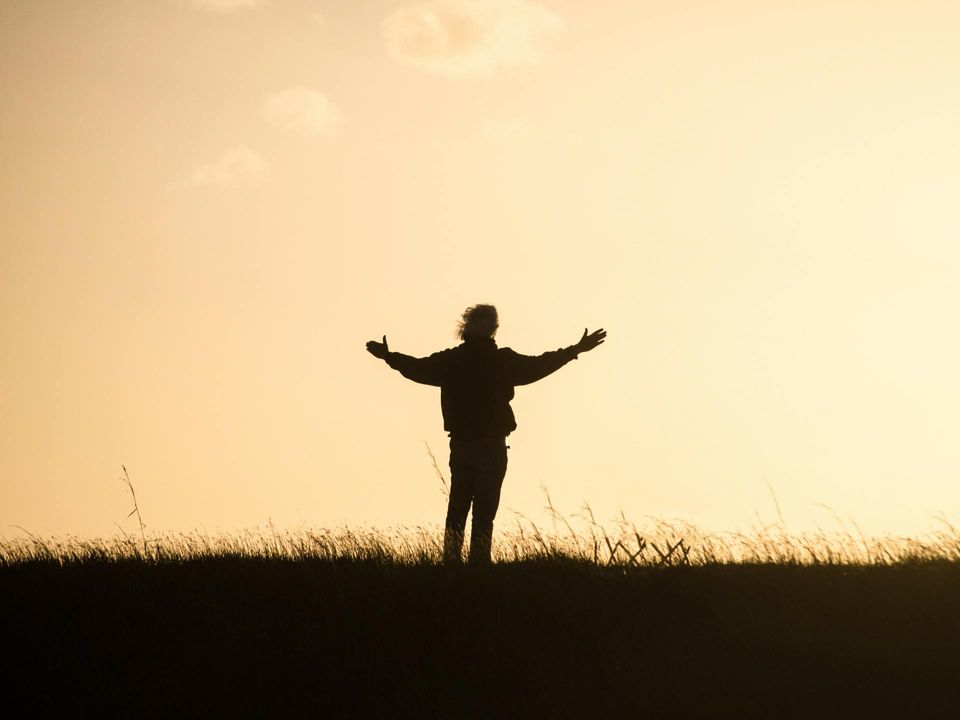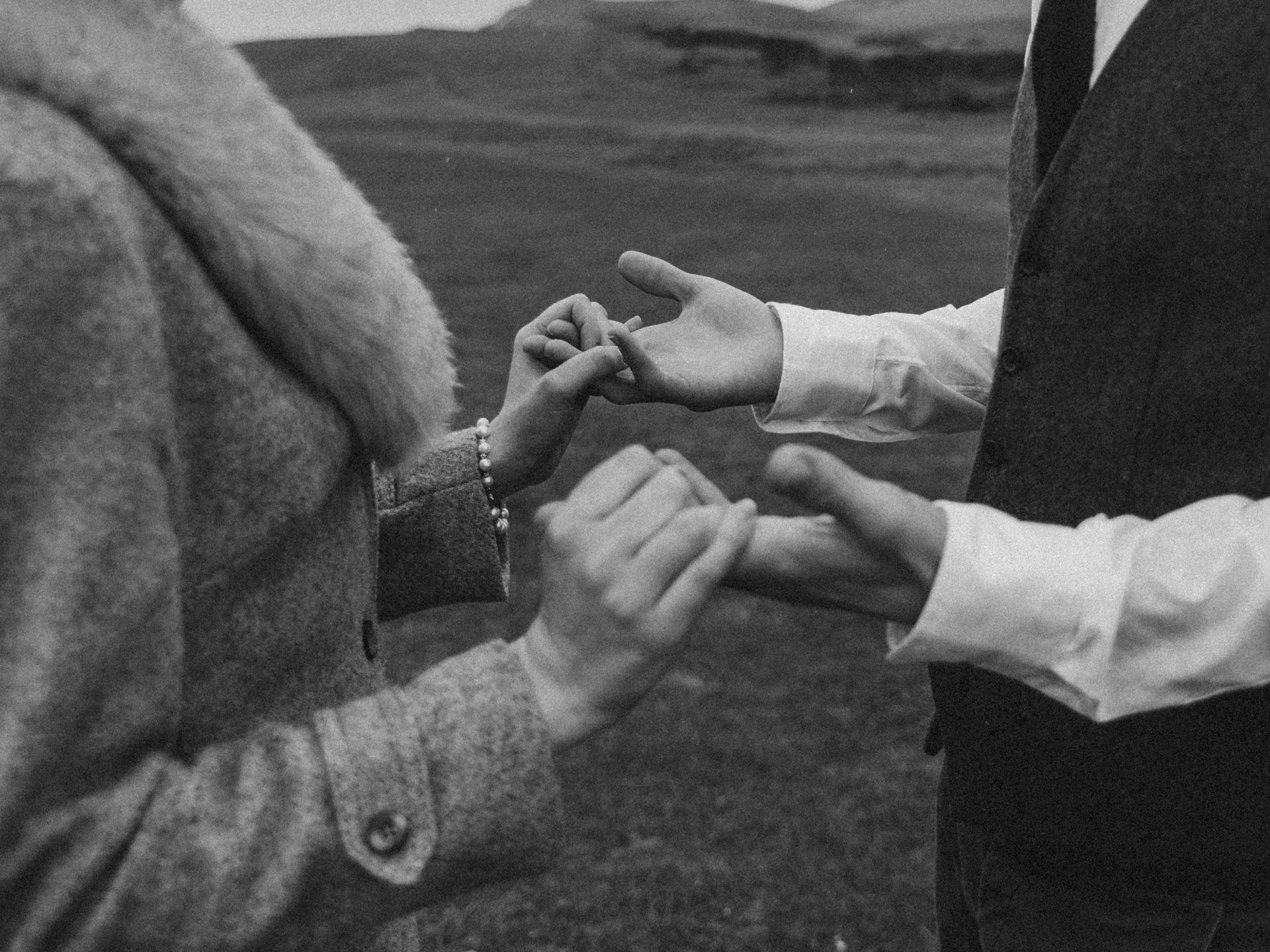Gratitude
Alice Edge • October 16, 2020
Luke 17:11-19

This story is one of the better known healings that Jesus did during his ministry, and I’ve heard it taught many times before. Luke places this story in a time where Jesus is well into his ministry. He has been travelling for quite a while with his disciples, and has spent a lot of time teaching and healing and performing miracles. We know, as well, that there are so many miracles and teaching moments and days in Jesus’ life that aren’t accounted for or documented throughout this Scriptures, and yet this one is. And so, I think it’s important to ask the question, “Why?”
As we read, Jesus is walking on his way to Jerusalem when he encounters ten men with leprosy, a skin infection that creates huge issues for the person with it. It’s a relatively easy-to-treat disease these days, but in Jesus’ time, those with leprosy were cast out of town and away from their communities because they were considered unclean. By sending them out of town and giving them the status ‘unclean,’ these men were excluded from everything that life had to offer. They were not able to see their friends and family, except from a distance, they were not able to work or earn a wage or have families of their own, and they were not able to participate in the traditions of their faith. They were outcasts. And the only way they would be allowed to enter back into society was to present themselves to the priest at the temple, completely healed, and be given the approval of that priest. This was quite a process, and rarely would it have happened because they were just not living in a society that had ways to make them well. It was a pretty hopeless situation for these guys.
And then, here comes Jesus. They yell at him from a distance, which makes me wonder what they’ve heard about Jesus already. There’s obviously some familiarity there, and I think their desperation to be well mixed with the snippets of things they had probably heard provides them with an illogical amount of hope that Jesus will stop and maybe heal them. And that’s exactly what happens. Jesus goes to them (in the process exposing himself to leprosy and causing him to be religiously unclean, but that’s a whole other sermon), listens to their pleading, and sends them, fully healed, to show themselves to the priests.
One of the things that stands out to me about Jesus is that he doesn’t just heal people for the sake of healing them, but rather every time he heals someone, it creates a way for them to re-enter their community. That, too, is another sermon entirely, but it’s something that we see here so beautifully. By healing these people of their leprosy, but making it possible for them to show themselves to the priest, they are now able to have a full life with the same opportunities create lives for themselves, and to be contributing members of their communities. It’s pretty amazing.
So, Jesus sends them all to be seen by the priest, and they all leave. I want to mention here, too, that it becomes clear they didn’t leave Jesus’ presence healed. It was somewhere on their way to the priest that the healing took place, and we know this because it says, ‘when he saw that he was healed, he returned…’ We don’t know how long these men had been walking for at this point. It could have been in the first few minutes or maybe half an hour. And I think that’s important to consider because it means that each of these men left to see the priest as an act of faith. They began their journey, unhealed, trusting that the healing would happen before they got there. And I think it’s important to think about that because it’s so easy in the next bit of the story to be quite harsh towards those men that didn’t return to thank Jesus.
Like I said at the beginning, I’ve heard this passage taught a lot of times, and I think every time it has been on gratefulness. And don’t get me wrong, I think it’s a great starting point. We can learn so much from the Samaritan man that came back to thank Jesus. And we can learn a lot from those that chose not to. I think it’s almost quite easy to stop the story at “this teaches us that we should be grateful to God when good things happen to us,” because I think there’s an insinuation that the other nine men weren’t grateful because they didn’t come back to thank Jesus.
But today, I want to take it a step further than stopping there. Because I don’t think that the nine men were ungrateful. I think their step in faith in heading to the priest unhealed is a clear sign of that. I also wonder if (and maybe I’m adding too much into this story that just isn’t there) they said thanks to Jesus as they were leaving. Maybe they had already expressed their gratitude to him in expectance of what was to come. We don’t actually know. But what we do know is that the Samaritan man came back. That for him, something was different.
And maybe, what was different for him was something that was happening in his heart. Maybe, his coming back was an act of worship over an act of religious duties. You see, I don’t think the other nine were wrong for continuing on to the priest. It was what they had to do, and what Jesus directly told them to do. It was also what was supposed to allow them to connect with God, because once they had done that, they were able to re-enter the religious ceremonies and practices that were so important in their faith.
But what we see from the Samaritan man that return was an act of worship grounded in gratitude. He chose to prioritise the desire in his heart to worship over the religious procedure that was meant to make it possible for that to happen.
And I started to wonder if sometimes we do this too. How often do we go through the motions of worship because they’re what our religion expects of us or asks of us? Or maybe, the question needs to be, how often do we set aside the religious idea of worship to worship solely from a place of gratitude?
I think this is where I see the most difference between the nine and the one. The one that came back had a heart-moment, filled with gratitude, and acted from that. His response of worship was from an outpouring of gratitude, where the others, regardless of how grateful they were, accepted it for what it was and continued on their way.
I wonder if, like we see with the Samaritan man, if we can allow ourselves to follow our hearts rather than the customs of belief, maybe it is then that we find ourselves in true worship. Where everything stops in that moment, where we put aside every expectation that we feel upon us to participate in religious worship in a particular way, and we just worshiped from the depths of our being from a place of pure gratitude from both little and big things, maybe that is where we truly encounter God.
Sermons For The Moment

This is an interesting Psalm – another psalm of ascent. We spoke about these Psalms of Ascent a few weeks ago. They were songs the Jewish people sang as they made their way to Jerusalem to go to the temple, through the forest, along the tracks, camping by the roads. And I believe songs like this kept them focussed and kept their spirits up. I can imagine days of walking together, tiring, boring, hot and dusty. And singing some of these Psalms keep them focussed on the faithfulness of God. Much better then eye spy for the kids. Journeys are not all their cracked up to be even if the destination is worth it. As you know, when I was growing up we always holidayed at Bawley Point past Ulladulla, and in those days it was about a 4 hour drive from Sydney. We always left later than we meant to…and the last 20 mins was on a dirt road. One year when I was probably about 4 years old it was dark by the time we got to the dirt road, and half way along the dirt road, was a dodgy wooden bridge over a river. I think part of the bridge had been damaged and we had to wait a bit in the pitch black darkness before we could proceed. Dad was out with a torch ensuring the bridge was safe to drive on and mum and us 4 kids were sitting in the darkness – no street lights, no moonlight. Of course, you might be able to guess what I said to mum in that car, with fearful crying…you’ve probably heard it from kids before. I said ‘I want to go home’. Mum said to me, ‘we can’t go home Robyn, we’re almost there’. In truth, after the bridge we had the last 10 minutes of a 4 hours journey left. We safely crossed the bridge and we were OK. But I remember it. I remember the feeling of being scarred in the darkness. I remember not liking this journey at all. Even though I always loved the destination. Well this psalm celebrates the end of the journey and the arrival at the destination. Psalm 126:1-3, “When the Lord brought back his exiles to Jerusalem, it was like a dream! We were filled with laughter, and we sang for joy. And the other nations said, “What amazing things the Lord has done for them.” Yes, the Lord has done amazing things for us! What joy!” Before we can understand the laughter and joy of the Israelites, we have to understand their journey. This Psalm looks back to when they arrived back in Jerusalem after 70 long years in Babylon. The captives had experienced great sorrow and mourning in exile. We read these heartbreaking words in Psalm 137: “Beside the rivers of Babylon, we sat and wept as we thought of Jerusalem. We put away our harps, hanging them on the branches of poplar trees. For our captors demanded a song from us. Our tormentors insisted on a joyful hymn: “Sing us one of those songs of Jerusalem!” But how can we sing the songs of the Lord while in a pagan land?” (Psalm 137:1-4). Their tormentors demanded they sing joyfully, but they were like – that’s impossible, it doesn’t come from our heart. So they just sat by the waters of Babylon and wept. But now by an amazing work of God they were suddenly back in Jerusalem. And so their joy came from their heart. The wait was over, the journey was complete. “We were filled with laughter, and we sang for joy.” The journey is the hard bit though isn’t it? I was reminded of this, this week. An Officer couple I was speaking to, said that their teenager said some very hurtful things to them. Stuff like, ‘you make my life worse’. As they spoke to me, I did very little but listen and pray with them. They do have other supports in their life as well, already seeing a psychologist. But what I was thinking in my head as they were speaking was ‘oh the teenage years, I’d forgotten them’. Though we have 2 wonderful young adults in P and K, they were times when it was more than tense. K wears her heart on her sleeve, and to this day apologises for some of the things she said to me. And P, you wouldn’t know what he was thinking, and then all of a sudden all his thoughts and feelings for the last 3 years would come out like molten lava everywhere. A few days later I checked in to see how the couple and their teenager were going. I mentioned in passing about teenage years and very briefly about our experiences. I didn’t want to make it all about me. But I said teenage years can be painful and those years can really hurt everyone in the family. Teenager included. They know that we have a good relationship with P and K and they said to me, you know, this is helpful. It gives us hope. I was like, yep, this too shall pass. Because when you’re in the midst of the journey of pain and sorrow, you sometimes wonder if there’s light at the end of the tunnel. If you’ll laugh again or experience joy again. You begin to wonder, “Is this all that God has for me? Will I ever be happy again?” And here’s the promise in Psalm 126:4-6, “Restore our fortunes, Lord, as streams renew the desert. Those who plant in tears will harvest with shouts of joy. They weep as they go to plant their seed, but they sing as they return with the harvest.” When you are going through a time of deep sorrow, Psalm 126 is strong medicine for your soul. It carries a powerful message of hope. It tells you that times of trouble and sorrow do not last. It tells you that God will turn your sorrow to joy and your tears to laughter. If you are going through a challenging time right now, I pray that this psalm will speak to your heart this morning. Let me tell you right up front, whatever you’re going through, it will get better. God will change your tears to joy. This week I found something I wrote about 10 years ago. I had written it on a piece of paper and there was a whole reflection about my life. At the time we had my mum living with us, she had dementia, and mostly I remember the good times and the fun times with her. I was also the Corps Officer at Glebe and Bob was the manager at William Booth House. After a page of writing I had written something like this “I’m often anxious, I’m usually stressed, I have eczema on my eyelids and ulcers in my mouth. I always feel pressed.” I went out to Bob in the lounge room and I’m like, ‘oh my goodness, eczema on my eyelids and ulcers in my mouth’, often anxious, usually stressed. The thing is, my life feels a long way from that now, and I’d forgotten what that part of my journey felt like. I’m sure when I was there I couldn’t look ahead and see a time of joy…but the truth is that “Those who plant in tears will harvest with shouts of joy. They weep as they go to plant their seed, but they sing as they return with the harvest.” This too shall pass. ‘Yes, the Lord has done amazing things for us!’ says verse 3. God is faithful – he does the healing, the restoring, he brings the streams in the desert that renews and brings fruitfulness. I don’t need to tell you – it takes time. Today, I’m praying for a work of healing in your life, a gradual restoration of joy, of laughter. Like me as a kid, sometimes we don’t like parts of this journey at all. Even though we know our destination is good. And ultimately, we have a destination like no other and that’s the promise of God. A home in heaven made possible through Jesus. May God bless you this week as you look to Him, listen to Him, find your hope in Him and find courage and healing in your journey.







